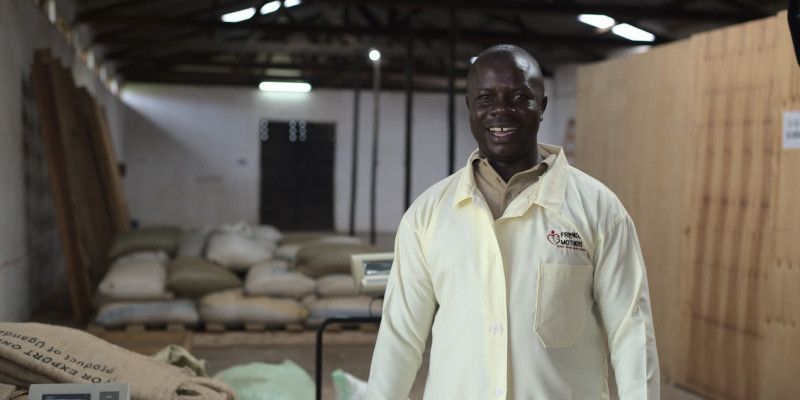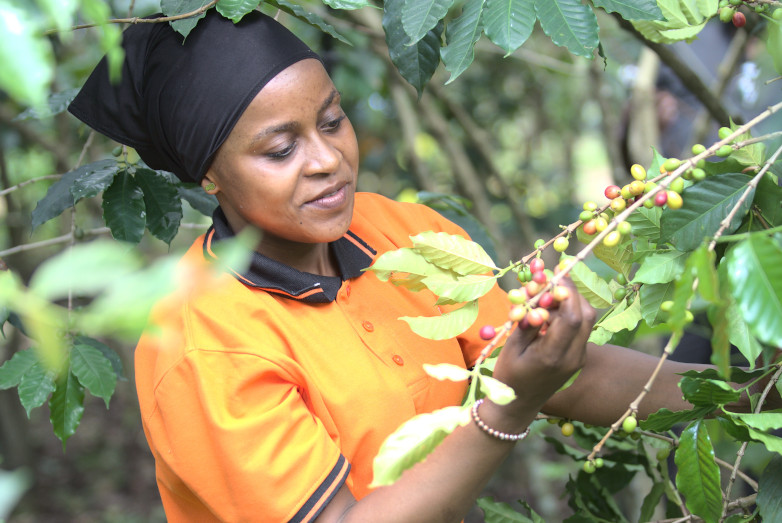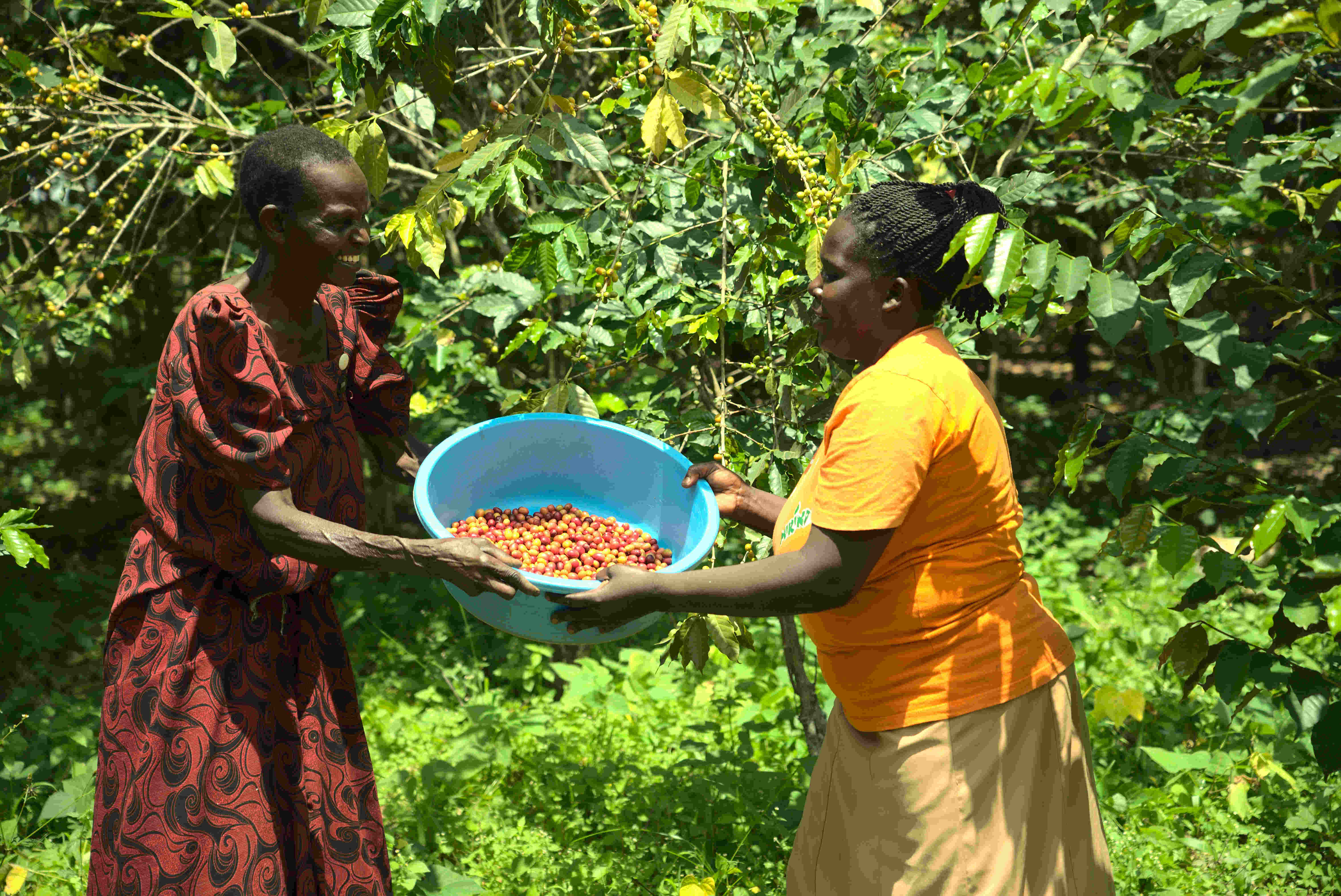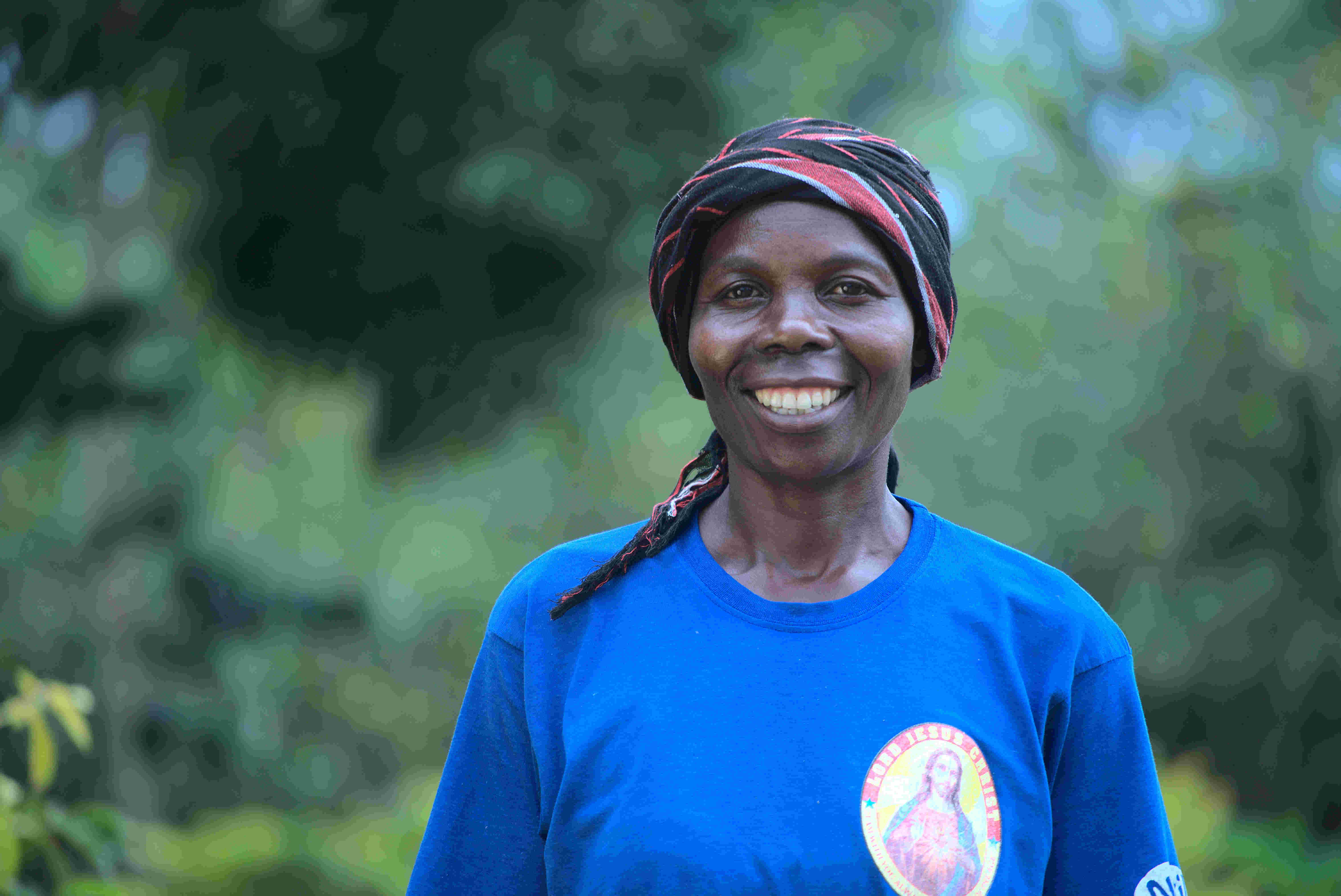
Making coffee allies in Uganda
When Massa Charles Frank decided to change career, he transformed a community of women farmers
Born in the Mount Elgon region of Uganda, Massa Charles Frank grew up surrounded by lush green coffee slopes.
Although he had been a respected teacher and a successful IT entrepreneur, he realised that agri-business was his true calling.
Seven years ago, Massa founded the Friends of Mothers Initiative – a flourishing fair trade and organic certified enterprise for green specialty Arabica coffee.

What sets his company apart from the rest is its unique alliance with women farmers, empowering them through coffee and filling the current gender gap in the coffee industry.
From digging and picking cherries to carrying the coffee to the cooperatives, women took the lead in the coffee gardens, but did not benefit from the business as the men of the family received the payments.
Massa derives his empathy for the women coffee farmers from a brush with his family’s coffee business in his younger years.
"As a young boy, I dreamt about supporting women and helping them get to the forefront of the coffee business. I wanted to see a correlation between the work and the payment to them."
Massa’s ambition to take the coffee from his region to the world highlighted the need for support. The company urgently needed working capital to begin exporting.

Access to finance opens doors
Had Massa not participated in a bootcamp on investment readiness he would not have qualified for a six-month coaching programme on approaching potential investors.
As a result, the Friends of Mothers Initiative now exports to the United States, Canada and Europe.
The working capital needed to finance these exports was brought in by loans secured as a result of the training. For example, Rabobank foundation partnered with the Friends of Mothers Initiative and provided a loan facility amounting to $104,000 in 2020.
Coffee is a business that requires a lot of money. We also had not mastered the heart of the business and were not familiar with logistics management for export.
We did not know how to market our coffees. If you do not know quality parameters or what the client wants, your product is rejected.
Marketing and Branding
"Our quality specialist received training on quality analysis. That’s how we can profile our coffees from different regions and target clients based on their preferences."
Having a stronger company enabled Massa to give back to the community of farmers he had always wanted to uplift.
He currently works with 200 women farmers from seven villages in the area.
Farmers built their capacity building on agronomic practices and financial literacy. In addition, the Friends of Mothers Initiative provided coffee pulpers and drying beds and is supporting access to finance through village savings.
"We also received support from the International Trade Centre on how to develop our story through marketing and branding training."
The women farmers are now ready to diversify their income streams and not only rely on seasonal income from coffee.
The Bonus
Working with the Friends of Mothers Initiative is a bonus, Rodha Kalangasa feels: "We sell our coffee at attractive prices and cash on delivery. We also get paid on time. The Friends of Mothers Initiative has improved the life of an ordinary rural woman."

Another farmer, Juliet Kalangasa is proud of being able to send her children to school.
‘My children have graduated, and they are going to continue with further education. A few years ago, I could not do that.’
As these women receive their due reward for working diligently, Massa looks forward to the end of the harvesting season in June.
He is determined to meet buyer’s expectations and attract new clients. Massa hopes to expand the coffee milling facility to grow exports.
With a motivated staff and a committed group of women farmers, Massa is set to achieve great successes!
Massa received training arranged by EU-EAC MARKUP through the International Trade Centre (ITC).
This article was written by Waqas Rafique and Anna Zampa, Public Information Officer and International Consultant International Trade Centre and first published in ITC’s Trade Forum.
Photo credits: ITC